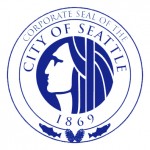By Dave Workman | Senior Editor 
The City of Seattle will pay $38,000 to the Second Amendment Foundation to settle a lawsuit filed earlier this year over the city’s failure to release all public records relating to January’s gun buyback fiasco.
The buyback was launched by anti-gun Mayor Mike McGinn in January, as a response to the Newtown tragedy in Connecticut. McGinn leaves office at the end of December after serving a single term during which he frequently campaigned for more gun control.
SAF founder and Executive Vice President Alan Gottlieb said the money will help support his organization’s continuing legal battles and educational efforts.
It is not the first time the city has lost a legal battle with SAF. Almost two years ago, SAF and other gun rights organizations including the National Rifle Association successfully sued the city to prevent a gun ban in city parks that violated Washington’s state preemption statute. Seattle pursued that case through the state Court of Appeals, losing a unanimous decision. A request for review was turned down by the state Supreme Court.
Joining SAF and NRA in that lawsuit were the Citizens Committee for the Right to Keep and Bear Arms, the Washington Arms Collectors and five individual plaintiffs.
In this latest case, SAF sought the records under the state’s Public Records Act after the buyback was held in a parking lot under I-5 in late January. The event took on a circus-like atmosphere as gun enthusiasts appeared on surrounding streets, offering cash for guns that would have been exchanged for gift cards. In the process, several valuable firearms were saved from the smelter.
Some 700 guns were obtained by the city and they were originally to have been melted down into “peace plaques” but instead ended up as rebar.
McGinn’s office issued an apology as part of the settlement. It stated, “The City of Seattle acknowledges that it had a duty under the Washington Public Records Act to provide all documents in response to the Second Amendment Foundation’s public disclosure request in a timely manner, and that it did not do so…The Mayor’s Office later located additional records that should have been produced along with the response to the Foundation, but were not. While the initial failure to produce records in this case was unintentional, the City acknowledges that it did not meet the requirements of the Public Records Act, and for that we sincerely apologize.”
The apology also says the city is “working to improve its processes for locating documents and responding to public records requests…”
The city had provided more than 1,670 records consisting primarily of e-mails between several of McGinn’s administrative staff, but in June, a report appearing in the Seattle P-I.com about the buyback revealed an e-mail exchange between Washington Ceasefire President Ralph Fascitelli and the mayor’s office that had not been turned over to SAF, according to Special Projects Director Phil Watson. The mayor’s office said that these additional records had been located later.
Fascitelli’s e-mail was damning because he warned McGinn’s office that buybacks had been shown to be a waste of resources and often backfired. His warning was essentially ignored and the hastily-planned buyback went forward. Fascitelli confirmed the exchange to TGM last summer.
The gun buyback has been a repeated source of embarrassment to McGinn’s administration, beginning with the fact that it was held in a parking lot under a freeway; the kind of scenario often used by anti-gunners to portray illegal gun trafficking.
Guns were taken in with no questions asked. A handful of those firearms had apparently been reported stolen at some time in the past. McGinn’s much-ballyhooed plan to have the guns melted and made into “peace plaques” produced a mini-scandal when it was revealed McGinn already knew they had been melted and turned into construction rebar when he announced the program.
SAF attorney Miko Tempski noted that Seattle’s apology insisted that withholding the documents was an “unintentional oversight,” but in conversations with TGM, he said a similar public records request to the office of King County Executive Dow Constantine had been handled swiftly and professionally.
McGinn lost a re-election effort against Democrat State Sen. Ed Murray in November.
From the outset, he was a gun control proponent, joining the Mayors Against Illegal Guns, succeeding former Mayor Greg Nickels, who had been a founding member of the anti-gun group created by billionaire New York Mayor Michael Bloomberg.
McGinn had a chance to drop the Seattle parks gun ban and moot the legal action, but his office pursued it in an attempt to weaken, if not destroy, the state preemption law.
As he leaves office, McGinn is being portrayed as a maverick that dislikes “elites,” which amounts to an irony, since his anti-gun activities have smacked of elitism. He spearheaded an effort to create “gun free zones” in many Seattle business establishments, essentially telegraphing to law-abiding gun owners that their business wasn’t welcome.
His effort to change the state preemption statute was solely designed to allow Seattle to set its own gun laws, separating it from, and – critics argue – elevating it above the rest of the state.



